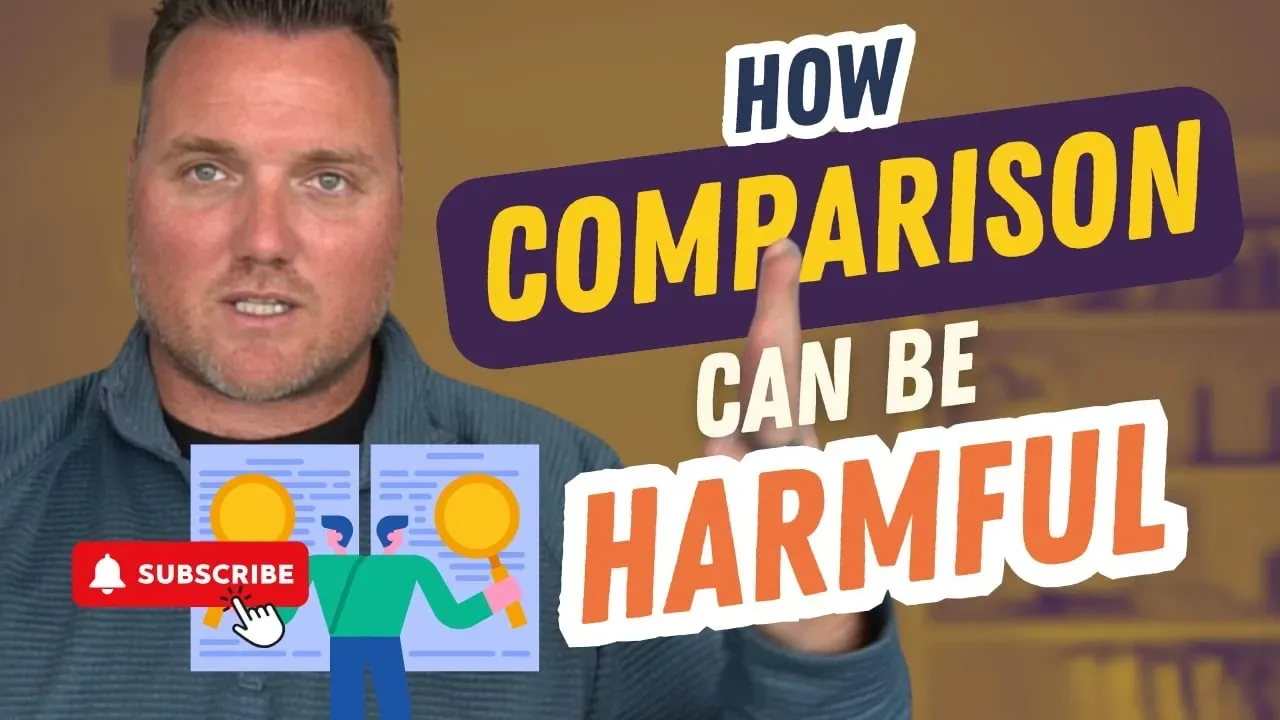How Comparison Can Be Harmful – And How To Use It for Growth
Apr 30, 2025
How Comparison Can Be Harmful (And How To Use It For Growth Instead)
Welcome to Restored Minds! If you’ve ever found yourself thinking, “At least I’m not as bad off as that person,” or comparing your struggles to those of others in dire circumstances, you’re not alone. This mindset is more common than we realize. But did you know that the way you compare yourself to others could be silently stalling your personal growth? Let’s dive into why this happens, and how you can flip the script to use comparison for your own well-being and motivation.
Why Comparison Can Be Harmful
Many of us fall into the habit of comparing our current situations — whether it’s mental health, physical health, relationships, or even our careers — to people who seem “worse off.” For example, if you’re twenty pounds overweight, you might comfort yourself by thinking, “Well, at least I’m not 400 pounds,” or “I’m not bedridden or housebound, so maybe I don’t need help.” As Matt Codde, licensed clinical social worker and founder of Restored Minds, points out, this type of thinking is a trap.
Here’s why:
-
It breeds complacency: When you compare yourself to people who are in much tougher situations, it makes you feel okay about staying where you are.
-
Stagnation sets in: This mindset prevents you from taking action or improving your situation. Over time, complacency can even set you on a downward path, leading to further decline.
-
It justifies inaction: You might believe that, since you’re not at rock bottom, you have no right to seek help or better your life.
The Power of Positive Comparison
So, if comparing yourself to people in worse circumstances holds you back, is comparison always bad? Absolutely not! The secret is to shift whom you compare yourself to.
Matt recommends a powerful alternative: Compare yourself to the person you could become. Ask yourself:
-
“Am I living my optimal life?”
-
“Am I the best partner, parent, employee, or business owner I could be?”
-
“What would the best version of myself look and feel like?”
When you set your sights on role models, mentors, or a version of yourself that you aspire to be, comparison becomes a source of motivation. Rather than settling, you begin striving for growth and improvement in your life.
Questions for Self-Reflection
To start using comparison for your benefit, try asking yourself:
-
What boundaries or beliefs are holding me back from where I want to be?
-
Am I settling for less because it’s comfortable?
-
What steps could I take to move toward my ideal self, even if I’m not “desperate” for change?
-
Who is already where I want to be, and what can I learn from them?
Why This Mindset Matters
Matt emphasizes that settling for where you are, simply because things “could be worse,” is doing yourself a disservice. You’re essentially displacing responsibility and missing out on your own potential.
The most powerful aspect of free will is that you get to define what’s possible for your life. Sure, there will always be factors beyond your control, but for the most part, the ceiling and boundaries in your life are set by your own beliefs and actions.
Take Action: Use Comparison As Motivation
If you truly want to break out of old patterns—whether it’s with OCD, anxiety, physical health, or relationships—stop measuring yourself against those doing worse and start looking up to those living the way you want to live.
Invest in mentorship, seek help, or utilize resources that move you toward your goals. As Matt says, “I owe it to myself to help myself get there.” You owe it to yourself too.
Start Your Growth Journey Today
If you’re ready to use comparison as a tool for growth, instead of a roadblock to your progress, Restored Minds has resources to help. Check out our free guides and assessments to start moving toward your best self.
Don’t settle for less—define your own potential, and take the steps to achieve it!


